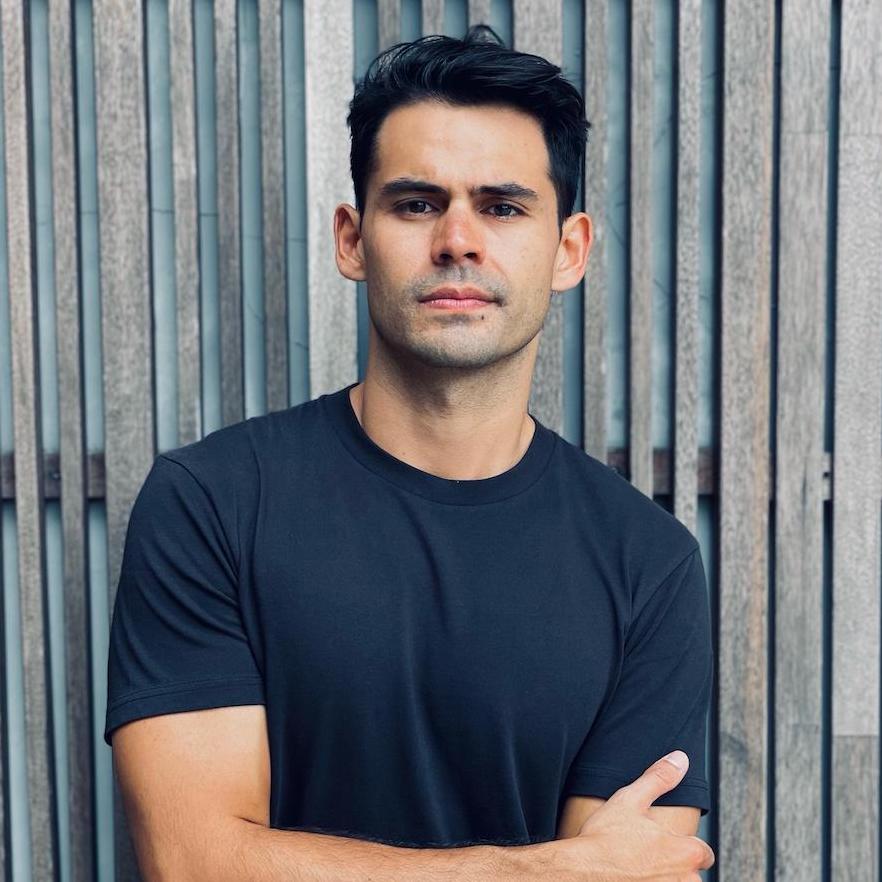Bali has a long-held reputation as a ‘Digital Nomad’ destination. Ever since the pioneering co-working space, Hubud, opened its doors in 2013, the ‘remote working’ population and associated businesses have mushroomed across the island. The occupation and industry of remote workers has evolved through the years, from digital marketing to drop shipping; the latest being cryptocurrencies and blockchain technology.
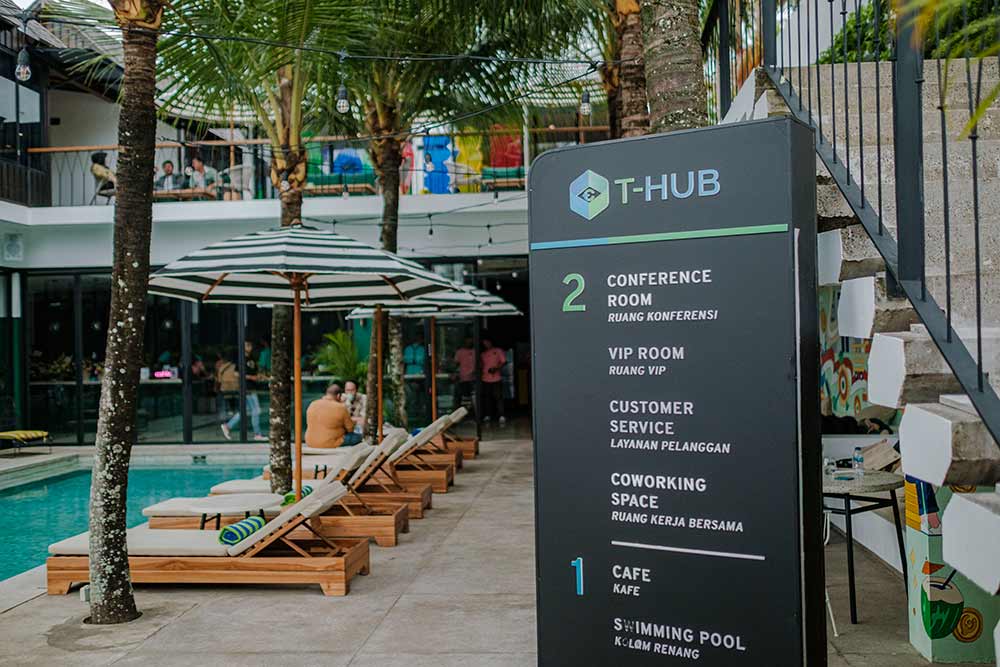
Understanding Bali’s unique position as an international digital nomad hub, one of Indonesia’s largest cryptocurrency exchanges, TokoCrypto, has opened a physical destination where crypto-enthusiasts, or even just the crypto-curious, can work, learn and connect with one another. Found on Jalan Batu Belig, between Seminyak and Canggu, T-Hub Bali is becoming a community base for both local and international practitioners in the field.
NOW! Bali speaks to Tokocrypto’s CEO and Founder, Pang Xue Kai, to find out how the industry is likely to grow on the island and why Bali is an important destination for the development of this digital space.
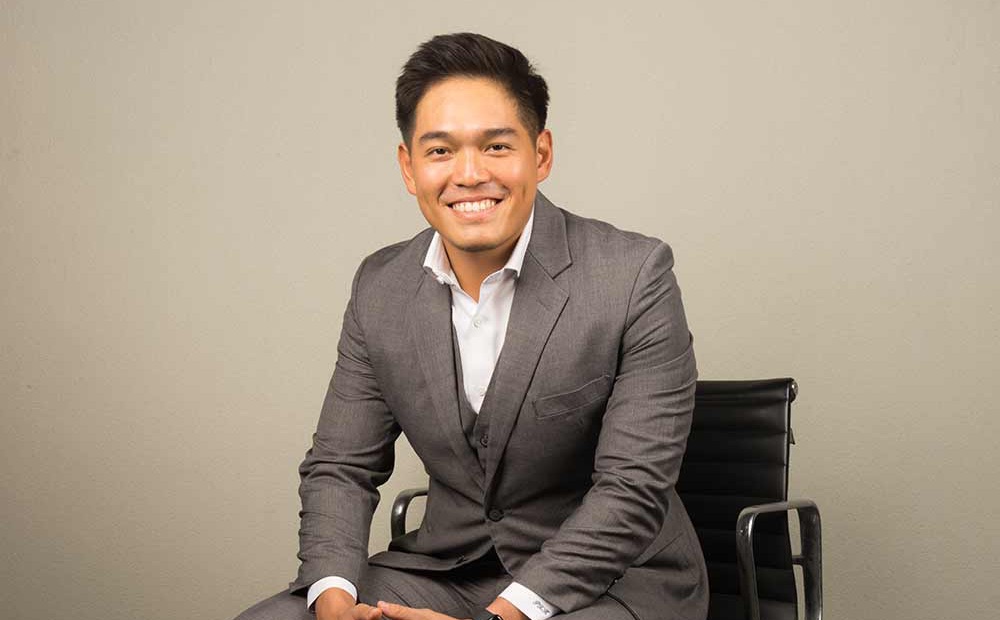
Kai, congratulations on opening T-Hub Bali back in January. It’s interesting however, that a tech company – with products and platforms online – feels the need to create a physical, bricks-and-mortar destination. What’s the thinking behind this?
Right. Fantastic question. One of the important drivers for us creating this space is that people still relate to physical objects. People still relate to physical presence, especially based on the observations that we have for Indonesia. So in real life events and networking opportunities are still very important. As ironic as it is, there are people who will not be able to understand that Bitcoin exists in the digital world unless they are physically educated that Bitcoin coin is not a coin. It exists as data.
We had this person come up to our office [in Jakarta], he was carrying a real, metallic coin with him. He came up to me and he said, “How much is this worth?” There are still people who believe that that a ‘Bitcoin’ is a physical coin!
So that is one of the key drivers on why we decided to have a physical space in Bali. The T-Hub. A physical place and presence for people who are interested to get into the space, but do not know what to do or where to go. Now they have a hub for them to be able to go and learn in a controlled environment, because it’s a brave new world, right? You gotta provide the necessary life support for people to grow.
It’s also very important for like-minded people, who are already aware and educated in the field, to link up and meet, as this industry will be determined by the success of its business players. It’s very difficult to exist as a silo. A company that is interested to building a product will need to connect with developers. We need to connect with advertisers, with marketing, with funds in order for it to grow in order for it to reach mass adoption. If we can start seeing that there are new people that want to learn about crypto coming in, that’s one of our key success factors. The T-Hub is ultimately not a revenue driving business for us, it’s a cost centre which we are willing to commit resources to.
If Indonesia’s financial centre is in Jakarta, what benefits do you see from opening this space in Bali specifically? What potentials do you think this island has?
Bali is a tourist hub — at least before the pandemic — but it’s a tourist hub for both domestic and international travellers. That’s why for us it’s great for ‘outreach’, which is precisely what our T-Hub is all about. The variety of nationalities and sheer number of people that we can reach simply makes sense. Since launch it’s already proven to be very successful.
How do you feel Bali has changed over the last two years during the pandemic — and how do you think this is complementary to its position as a safe have for this specific digital industry?
Prior to the pandemic we’ve always seen Bali as a ‘temporary’ tourism spot. Travellers will come, stay a few days, maybe a few weeks, then they’ll leave. During the pandemic we saw this rise of digital nomads: a segment of the population who realised that since all of their work is online now, there’s nothing stopping them from relocating permanently or semi-permanently. This isn’t just for foreigners. Domestic residents made the move too. If you remember even the Indonesian Government initiated a program to ‘work from Bali’. This drove a lot of human capital to adjust their lives and take up this opportunity to work from the island — in front of the beach!
On top of that, I must say that the entire infrastructure has improved tremendously in Bali in terms of connectivity. T-Hub is ultimately very well-positioned to capitalise on this movement, this switch of people to actually stay and adopt a more digital nomad life. We are seeing a value transition from just a transient tourism hub to something that is more longterm.
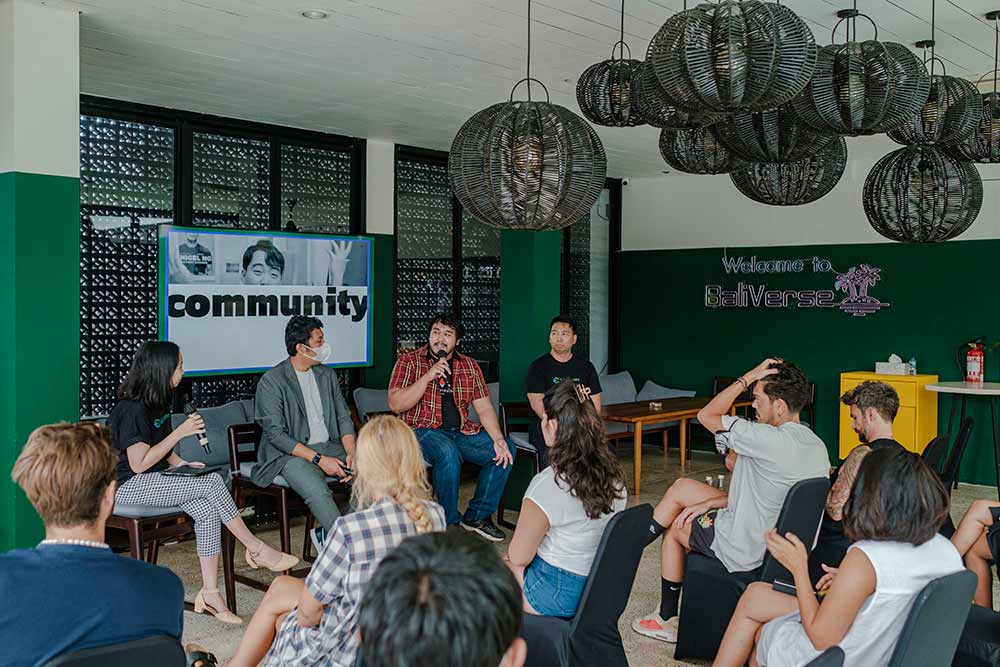
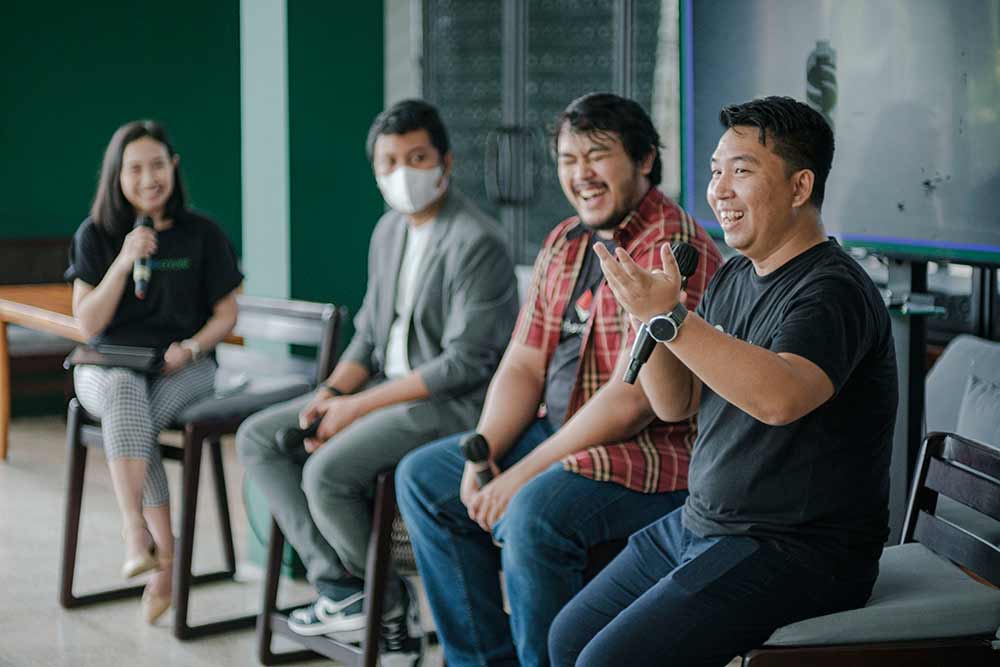
The Balinese and Central Government were actually pushing the idea of a Digital Nomad Visa for a while, allowing for medium- to longterm stay permits. Do you see Bali actually being marketed as a ‘crypto-destination’ specifically?
Honestly that’s what I am – and we as TokoCrypto – are pushing for. We’ve been very proactive in pushing the idea of Bali as a crypto hub to the government. We are coordinating across the Singapore and Indonesian government to see the potential of creating a ‘crypto-corridor’ between Singapore and Bali, whereby people can leverage on the strong regulations in Singapore whilst being able to work in a conducive and now innovative environment like Bali.
That brings me to my next question actually. We’ve seen the crippling effects of Bali’s over-dependence on tourism, do you see any real-world utility for cryptocurrencies and blockchain that Bali can adopt to help bolster against this? Do you see this new digital economy providing more employment or opportunities on the island?
Bali is well-known for its creative and artistic industry. So there has been efforts through TokoCrypto’s NFP platform [TokoMall]: we have conducted multiple classes for photographers and for artists to understand more about our NFT platform, about the NFT space, about how they can best leverage this, because a lot of these traditional artists and photographers are used to having their physical art form on display in art galleries. So this concept of being able to display and sell their work on a digital gallery, like a digital NFT platform, is something that we identify as a huge opportunity for this particular industry. For them to be able to transcend the limitations of geographical borders.
This will help to make the industry more resilient to – hopefully this doesn’t happen – you know, a future pandemic perhaps. We believe that once you go into the digital world, you’re now borderless, you’re open to a market and trade opportunities that is has no boundaries. Yes, it’s challenging. It’s scary at times, but it’s where we see the shift going towards. A concept that I discuss with my friends is pondering on which world is real: the digital world or the real world? The fact of the matter is that the world that you spent most time in will be what’s real to you. And right now we are seeing more people spend time in the digital world through mediums like smartphones, your laptops, you know, everything is conducted in this digital world. And as more time is shifted into this digital world the value of products in the digital world will increase. So that’s one of the opportunities that we see Bali’s traditional business models can benefit from.
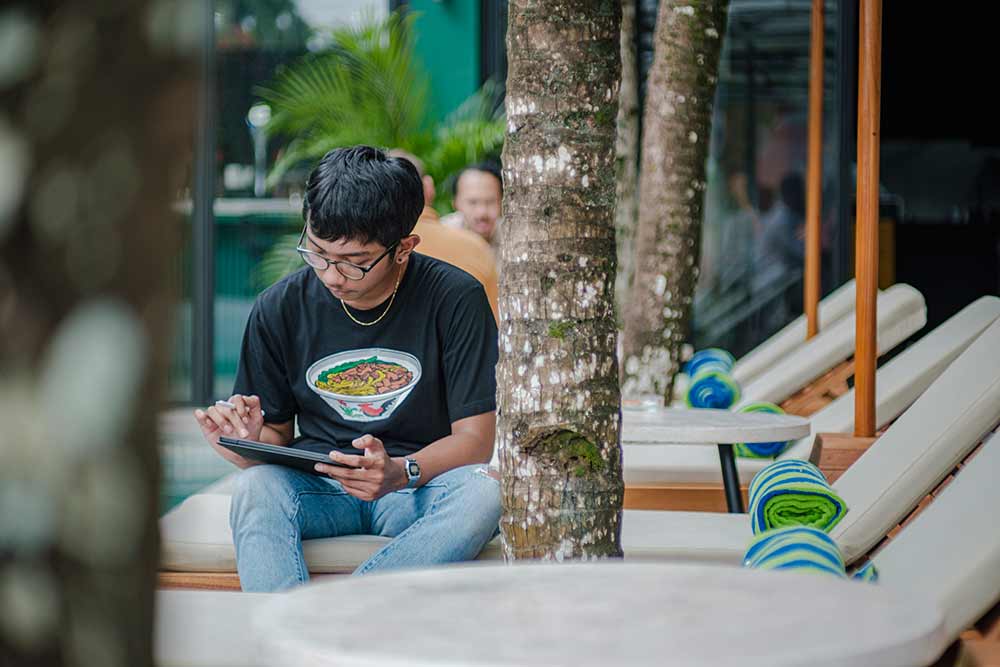
TokoCrypto has a huge ecosystem already, are there any other platforms or developments that you see helping to grow Bali’s, or Indonesia’s, digital economy? Which in turn will help to diversify job opportunities across the board.
So we have our exchange, our NFT platform, our T-Hub. One of the most exciting, upcoming developments is our program in collaboration with BRI Ventures called, called TSBA, which is an accelerator program for blockchain-related startups in the field of gaming, centralised and decentralised finance, impact projects and NFTs. Through this we provide guidance, workshops, partnerships and investment possibilities.
There’s a booming and growing interest from traditional venture capitalists to enter the blockchain space and so I see that as promising for future entrepreneurs of Indonesia to be able to access capital and fund them to enter the market. We also have the Toko Launchpad which helps others achieve Initial Dex Offering (IDO).
When we start seeing more business players coming in – not just coming in, taking the money and go – but coming in, build products, build platforms, build ecosystems that are successful and are built for longterm sustainability, then the entire industry can grow and benefit. The benefits of blockchain technology can be huge, especially for the population that most needs it.
—
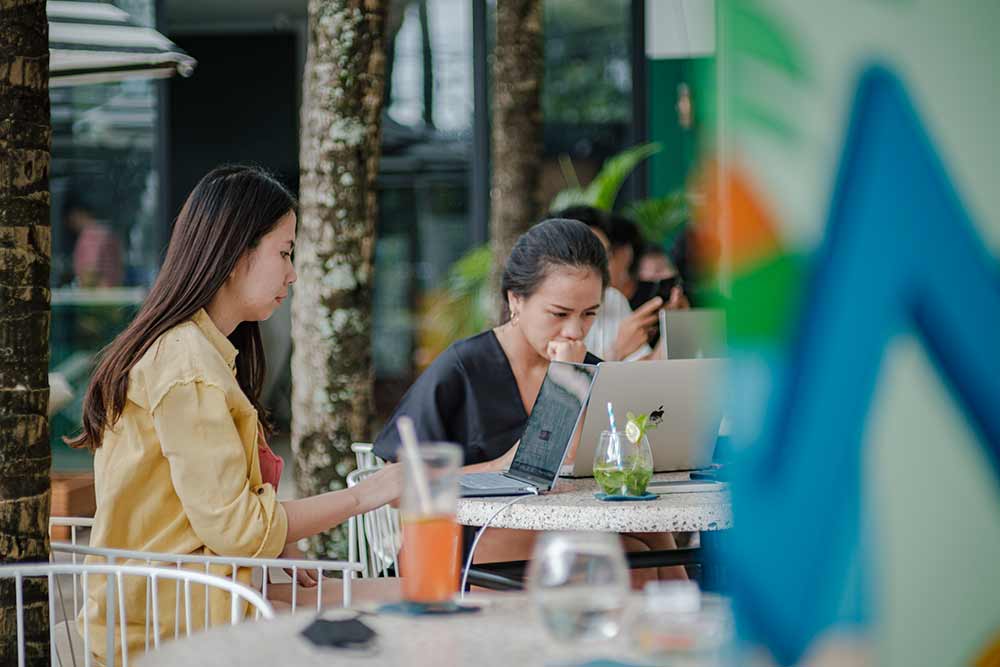
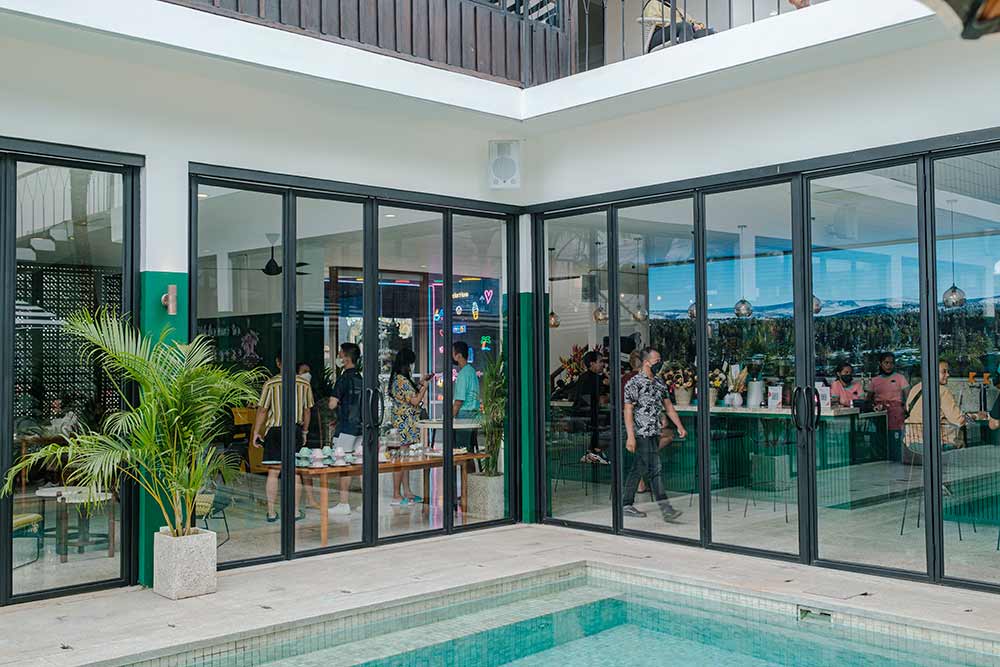
T-HUB Bali is open daily. It is home to a co-working space, swimming pool, lounge, NFT Gallery, bar and restaurant as well as event space. It functions as a place to work but also a social hangout. The hub organises regular public events and gatherings with speakers sharing knowledge on cryptocurrencies and blockchain.

